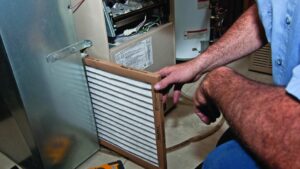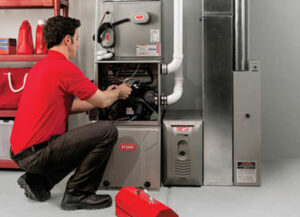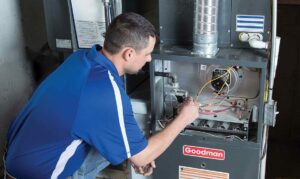What is a Hot Water Heater?
Many of us wonder, how does a hot water heater work?
If you have a water heater at your home, you should consider how it keeps you comfortable and how it operates. If your water heater stops working, this could be the beginning of your worries. Unusable dishwashers and cold showers could ruin your day.
If you’re considering purchasing a hot water heater, it is helpful to know some of the basics that will save you a lot of problems and stress down the road. This guide will inform you how they work and the various types of hot water heaters.
Related: Furnace vs Water Heater
Basics of Water Heaters
You should be aware that water heaters are machines that convert energy to heat, thus creating and supplying hot water throughout your place. How does a water heater work? Before we answer the question, there are some different types of systems concerning water heaters. We can divide most residential units into two categories:
Tank-type Water Heaters
Tank-type water heaters are the most common and used water heater by most people. It is a tank that holds and stores hot water. Primarily, you find these types of water heaters in older homes instead of new modern age homes.
This type of water heater is losing its popularity slowly simply because it is very inefficient today. The tank-type water heaters hold the heated water till the time of need at your place.
How Tank-type Water Heaters Work
The water heaters either run on electricity or fuel and have three pipes for transferring water. The first two pipes bring in cold water and move out hot water. The third acts as a safety valve by releasing H20 in case the pressure exceeds the safety limit.
The hot water tank heats the cold water by the heat elements found at the tank’s bottom. Once the water is heated, it rises towards the tank’s top, releasing it by the hot water pipe.
If you are not using hot water, the water remains in the heater’s tank, continuously undergoing heating. If you use all of the hot water, you can experience a delay as the tank refills. As of now, you can be able to know how the tank-type water heaters work.
Tankless Water Heaters
Tankless water heaters nowadays are widely known by many people simply because of the increased efficiency of energy. These water heaters heat the water when demanded to, instead of continuously running to keep the water hot.
However, it has some disadvantages, including low flow rates, particularly if your water heater unit doesn’t have a small tank for storing water. The water storage units are supposed to increase the flow rates while the hot water present is used instead of holding it.
How The Tankless Type of Water Heaters Work
The tankless type of water heater works by the use of a coil that heats the cold water. Most people wonder how a water heater works; well, we got you covered. There are two kinds of tankless types of water heaters that include standalone and boiler-mounted.
The boiler-mounted water heaters depend on the boiler to produce heat instead of the standalone water heaters that use a gas fire together with a heat exchanger and a coil.
Basic Troubleshooting
Temperature issues
How does a water heater work? You know now, and you should also be aware of the troubleshooting mechanisms. In case the hot water is not present, first check the breaker. If there is a fuse that has blown, it could be one of the problems why the heater is not working.
Be sure that you have identified the problem. If the thermostat and electrical breakers are working correctly, check the heating element.
In case the hot water is not enough, the most likely problem could be with the thermostat. If you are at least receiving some warm water, the water would be least warm and quickly running out.
If the thermostat has malfunctioned, you should know the type of water heater present to locate it quickly. On some electrical models, you can find it behind the access pane.
In case the water is boiling, the most likely problem could be again at the thermostat. You should be able to check this before already changing the setup temperature as the primary solution. If this solution doesn’t help, the most likely problem is an issue concerning wiring that a professional should handle.
Takes a long time to heat
If your water heater takes a long time to heat, the heating unit or the thermostat is the most likely problem. You can also read the user’s manual to check how long the water heater needs to refill its supply.
Low water pressure
Most of the older homes tend to have insufficient water pressure because of their original plumbing. The most likely solution to this problem is to replace piping to ensure the water pressure increases. Another problem could be the presence of a leak in the pipes.
Smelly water, rust, and dust
In case your water is rusty, the most likely solution is for you to replace the anode rod or a corroded tank. In case your water smells bad, the most likely problem could be bacteria growth. The most likely solution is for you to flush the tank and also replace the anode rod.
How Does a Hot Water Heater Work – Conclusion
For those people asking, how does a water heater work? We have already discussed that and offered you some pointers. Knowing the specific basics of the water heater unit is very necessary for preparation for the unexpected.
If you are having problems with your water heater, contact us and we will send a professional plumber to your home right away.






